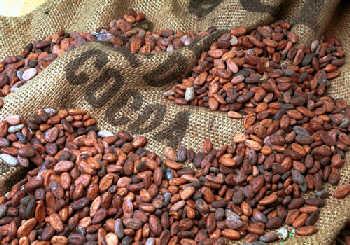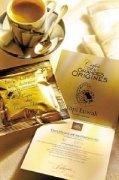Choose the "birth theory" of a cup of coffee that suits you

"I'm not at the cafe. I'm on my way to the cafe."
Do you still remember when this familiar saying began to spread? Once upon a time, going to drink coffee was regarded as a symbol of "petty bourgeoisie". Taking a nap and chatting in a coffee shop was considered to be synonymous with elegance and fashion, while men and women drinking coffee and talking about each other meant love and sweetness. How much do you know about coffee? Let's go into the coffee kingdom and explore some of its mysteries.
The birth Theory of Coffee
There are many legends about coffee, two of which are interesting to talk about, namely, the Story of the Shepherd and the Legend of Arab monks.
The Story of the Shepherd can also be called the Legend of Cardy. The story is based on the sixth century Yisso plateau. Legend has it that in the sixth century, there was a shepherd in Ethiopia named Cardi. One day he found his sheep bouncing there all of a sudden. He thought it was incredible and observed it carefully. Only then did he realize that the sheep had eaten a kind of red fruit. So he picked the fruit and distributed it to the monks in the monastery, who felt refreshed after eating it. These fruits are today's coffee beans.
The Legend of Arab monks can also be called the Legend of Shake Omar. In 1258, Shek Omar, the chief expelled by his people for crime, was too hungry and tired to walk when he wandered to Vasaba (in Arabia), far from his hometown of Moka. When he sat on the root of the tree to rest, he found a bird coming and stopping on the branch, crying in a most pleasant voice he had never heard before. He looked carefully and found that the bird was pecking at the fruit of the branch. So he picked all the fruit in that area and boiled it with water, and soon it began to give off a strong fragrance. After drinking it, he not only felt delicious, but also felt tired physically and mentally, so he picked many of these magical fruits and brought them soup to drink when he met a patient. Coffee was discovered, and Shack Omar was exonerated for doing a wide range of good deeds.
The "lineage Theory" of Coffee
Like red wine, the quality of coffee has a lot to do with where it comes from. The most famous coffee producers are as follows:
Brazil
The largest coffee producer. One of the most famous is Sandos Coffee, which tastes mellow, neutral, can be directly boiled, or mixed with other kinds of coffee beans into a comprehensive coffee, is also a good choice. Other kinds of Brazilian coffee, such as Rio and Parana, can be produced in large quantities because they do not need too much care. Although the taste is rough, it is a kind of coffee with good quality and low price.
Colombia
The second largest coffee industry after Brazil in terms of output. The more famous producing areas "Medellin", "Manizarez", "Bogota", "Armenia" and so on, the coffee beans cultivated are all Anicabi species, the taste is quite rich, the quality and price are also very stable, and the roasted coffee beans are even bigger and more beautiful. From low-grade products to high-grade products can be produced, some of which are rare good goods in the world, the taste is so mellow that people can't put it down.
Mexico
A major coffee producer in Central America. The coffee here has a comfortable taste and charming aroma. The Mexican coffees selected are Coatepec, Huatusco and Orizaba, of which Cottpe is considered to be one of the best in the world.
Hawaii
In addition to sightseeing in Hawaii, don't forget that Hawaii also produces coffee beans-Kona. The palate is sweet with the acidity of a pleasant wine, very special. It is the Kon-a produced on the southwest coast of Hawaii, which is the most traditional and famous coffee in Hawaii.
Indonesia
Sumatra's high-grade Mantenin, its unique fragrant taste, slightly acidic taste, the quality can be said to be the first in the world. In addition, Arabian coffee produced in Java is sweet in bitterness and sour in the middle of it, which lasts for a long time.
Costa Rica
The coffee beans produced at the high latitudes of Costa Rica are famous in the world, full-bodied, mild, but extremely sour, and the famous coffee is produced in the CentralPlateau, where the soil consists of successive layers of volcanic ash and dust.
Angola
The world's fourth largest coffee industry, but only produces a small amount of Arabica coffee, the high quality is needless to say.
Ethiopia
The hometown of Arabian coffee. Growing up at high latitudes requires a lot of manual care. There is the famous Esopiamoka, which has a sour taste similar to that of wine, fragrant and productive.
Jamaica
Jamaica's national treasure, Blue Mountain Coffee, is flawless in every way, just like wine. Growing at an altitude of more than 2000 meters, combined with essence roasting technology, it is the best coffee.
Kenya
Kenya grows high-quality Arabica coffee beans, which absorb almost the essence of coffee cherries, taste slightly sour, have a thick flavor, and are very popular in Europe.
Yemen
Mocha coffee must be very familiar to everyone. The Yemeni mocha used to be a whirlwind around the world. Sour and mellow, medium acid to strong acid with lubrication, sweet characteristics.
Peru
Peruvian coffee, a rising star, is gradually gaining popularity and entering the world. More planting in high-altitude areas, planned planting to greatly increase the yield, mellow taste, the right acidity.
Guatemala
The central part of Guatemala is home to world-famous coffee with excellent flavor. Most of the coffee beans here have charcoal flavor and cocoa flavor, but their acidity is slightly stronger.
Important Notice :
前街咖啡 FrontStreet Coffee has moved to new addredd:
FrontStreet Coffee Address: 315,Donghua East Road,GuangZhou
Tel:020 38364473
- Prev

Cat poop coffee civet coffee basics common sense
Roasting process of Luwak coffee beans: 1. Civets like to eat ripe red coffee fruits on coffee trees; 2. Undigested coffee seeds are picked out from cat feces; 3. The silver-gray film of coffee seeds is removed and washed with water and dried in the sun; 4. Luwak coffee beans are made by stirring. Indonesians remove the silver-gray film on the outside of coffee beans, wash them with water, dry them in the sun,
- Next

Smell fragrance, view color coffee, taste coffee, there is still some fastidiousness and knowledge.
You can add a little sugar and milk to the pure black coffee; you can also add spices such as cinnamon to the coffee as in Africa and Arabia; if you are not used to the bitter taste of coffee, you can also add a little juice you like to your coffee, but if you drink a cup of authentic black coffee, you can taste the rich flavor of the coffee itself, which will be seen as tasting coffee
Related
- Beginners will see the "Coffee pull flower" guide!
- What is the difference between ice blog purified milk and ordinary milk coffee?
- Why is the Philippines the largest producer of crops in Liberia?
- For coffee extraction, should the fine powder be retained?
- How does extracted espresso fill pressed powder? How much strength does it take to press the powder?
- How to make jasmine cold extract coffee? Is the jasmine + latte good?
- Will this little toy really make the coffee taste better? How does Lily Drip affect coffee extraction?
- Will the action of slapping the filter cup also affect coffee extraction?
- What's the difference between powder-to-water ratio and powder-to-liquid ratio?
- What is the Ethiopian local species? What does it have to do with Heirloom native species?

